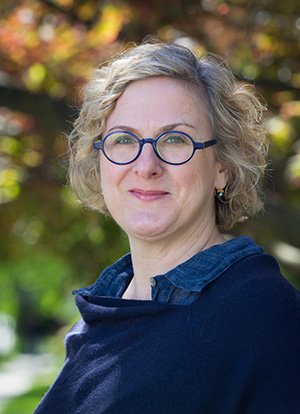Musicologist Barbara Milewski Honored for Article on Chopin

Daniel Underhill Professor of Music Barbara Milewski and musicologist Bret Werb of the United States Holocaust Memorial Museum (USHMM) recently received the Aquila Polonica Article Prize from the Polish Studies Association.
The prize, awarded every two years, is granted to the author(s) of the best article written in English on any aspect of Polish studies. Milewski and Werb were recognized for “Chopin’s Żydek, and Other Apocryphal Tales,” published in The Journal of Musicology, in which they undertake a detailed examination of Chopin’s alleged encounter with Jewish music.
Drawing on a rich array of sources, they trace the birth and development of a narrative that has inaccurately positioned Chopin as interested in and inspired by Jewish musical traditions. They argue that the “Jewish tales” that cling to the composer’s biography reflect later 19th-century nationalist rhetoric, anachronistic misreadings of Polish-Jewish relations, and unchallenged reliance on precedent writing.
“The honor was a wonderful surprise, as it is a competitive award that is not discipline specific,” says Milewski, who is on leave from Swarthmore this year to serve as the Joyce and Arthur Schechter Fellow at the USHMM’s Jack, Joseph and Morton Mandel Center for Advanced Holocaust Studies. “The award panel includes distinguished judges from different fields of academia who work in various international higher educational settings,” she says.
The article required years of archival work and research across a range of fields, including Polish history, Jewish history, Polish 19th-century literature, folklore studies, musicology, and ethnomusicology.
“Dr. Werb and I are longtime collaborators, so we enjoyed the opportunity to work together on this project,” she says. “We hope that it will dispel one of the longest-standing myths about Chopin's interest in and interactions with Jewish music.”
Through painstaking research and careful analysis of historical sources, the scholars show that it is more constructive to thoughtfully situate Chopin in a broader sociocultural context that allows for new and meaningful interpretations of his life and works.
“The article is engaging and beautifully written,” a press release Aquila Polonica Publishing states, “and offers a compelling model of an interdisciplinary analysis that uncovers historical realities that broaden our understanding of central themes in Polish studies.
The prize was presented in Philadelphia on November 30, at the Polish Studies Association’s annual meeting and reception at the national convention of the Association for Slavic, Eurasian, and East European Studies (ASEEES).


